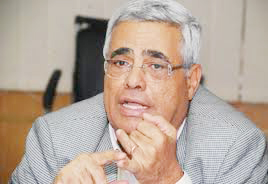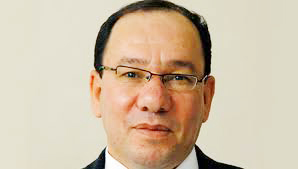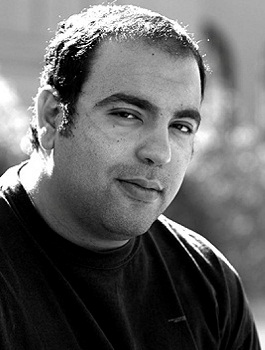In the occasion of ousted President Mubarak’s retrial, op-ed pages dissect how he appeared waving to the people in the courthouse as if no revolution has occurred.
How will the country be administrated in the coming six months?
Hassan Nafaa
Al-Masry Al-Youm newspaper
After President Mohamed Morsi’s statements about the probability of holding parliamentary elections next October, Nafaa wonders how Egypt will be administrated throughout the upcoming six months. Prime Minister Hesham Qandil’s government has been proven a failure and the economic situation is deteriorating. Political polarisation in Egypt has reached its peak, which makes the columnist think of how the country will tolerate a failing administration in the coming period before the planned elections. If the prime minister is replaced, Nafaa questions the country’s ability to bear a new government in the midst of the currently political environment. Morsi has not met the 25 January Revolution demands, and he also refuses to run in new presidential elections to renew the citizens’ trust in him.
Nafaa criticises how Morsi protected the Muslim Brotherhood and made the Islamist group his priority. Now Egypt has a president who was elected by 51.7% and is faced by aggressive opposition. The writer concludes his article calling upon the different political parties and groups as well as the government to engage in genuine dialogue, in order to help Egypt find an end to the current political maze.
Three observations
Mohamed Salmawi
Al-Masry Al-Youm newspaper
Salmawi lists some observations on Morsi’s recent visit to Sudan and the sectarian tensions that occurred in Al-Khasous village less than two weeks ago. The writer believes that presidential visits to other countries should ultimately aim at bolstering bilateral relations and strengthening ties. In Morsi’s visit to Sudan, Salmawi condemns how the issue of Halai’b and Shalateen provoked controversial statements from a Sudanese official. The writer cannot see a proper reason for why Morsi had initially gone to Sudan and why suddenly. He then starts to dissect the cause that triggered the sectarian tensions in Al-Khasous.
He states that some have claimed that a group of people drew a cross on the walls of a mosque though it turned out to be a swastika, the symbol of Nazism. The writer states that even drawing a swastika on a wall is common in graffiti drawn across Cairo. It should not have spurred sectarian conflict that led to deaths and injuries. Announcing that the perpetuators of the Al-Khasous incident are “thugs” means that authorities failed to identify their real identities. Probably, there are other forces utilising such perpetuators, believes Salmawi.
The revolution is caught up, so Mubarak smiled
Emad Al-Din Hussein
Al-Shorouk newspaper
Hussein describes the retrial of ousted president Mubarak which took place on Saturday. Mubarak appeared behind bars waving to the cameras, as if still the president of the republic. The writer compared this scene with Mubarak’s image last year when he was first sent to court and was heard replying to the judge in a trembling voice. The unity of revolutionaries was the main reason that set Mubarak and his sons in a tricky situation, but after Morsi had announced his above-the-law 22 November constitutional declaration, Egyptians started to divide politically. Morsi has the right to rule the country because he was elected by citizens, but he does not have the minimum right to issue authoritarian decisions, states Hussein.
Now that Egypt is shattered and affected by the escalating political polarisation, Mubarak feels some hope to come back to the light of political life. In Hussein’s viewpoint, Morsi’s constitutional declaration was the kiss of life to Mubarak and his gang. Morsi’s nine months in power are evident enough that Mubarak wasn’t probably the only dictator in the history of Egypt. Morsi is in continuous conflict with religious institutions, civil society organisations and the opposition. This denotes a failing administration and a poor performance in managing to bring Egyptians together. If Hussein was in Morsi’s place, he would have analysed the significance of Mubarak’s smile while behind bars.
Mubarak is telling you to bring your consciousness out of the fridge
Wael Qandil
Al-Shorouk newspaper
Qandil examines Mubarak’s appearance, wearing his sunglasses and waving to his supporters, during his retrial. He blames the split of Egyptian revolutionaries for this scene, believing that the image wiped the memories of those killed during the 25 January Revolution. This is perhaps a good occasion for those who cried over Mubarak to remember the day when he stepped down and their screams in front of those who claimed they were pro-revolution.
Qandil states the occasion brings a comparison between those who supported protests against the death of Khaled Said and those who supported the ex-presidential candidate Ahmed Shafiq. Mubarak’s smile behind the bars should be an alarm bell to those who decided to let go of all the revolution’s concepts and objectives. He finally calls upon demonstrators in various squares across the country to revise the slogans chanted to keep the revolution alive.







